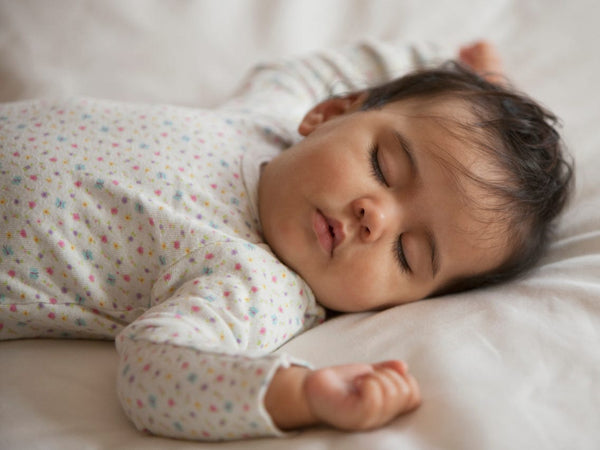Are you expecting your first baby? Are the nerves and excitement creeping in and leaving you with millions of questions about babies? Well, just to give you a brief insight into the world of newborn babies, here are some fun facts about newborn babies you never knew! This will give you an idea of what you can expect, and maybe even a few laughs!
Are you looking for the perfect new mummy gift? Check out our adorable selection to buy online today!
Sleeping Habits

- Newborn babies sleep 16 hours per day on average. A lot of people think new babies are awake all night. The truth is, they can be up for about two hours at one time - and it usually goes in waves throughout the night!
- Aside from being alert all day long (when awake), most babies will sleep 16 hours per day in short intervals during naps. They also need two more hours of nighttime sleep, as mentioned before. How much your child needs depends on when they were born, so make sure you find out if your baby is a short sleeper (as in, needs more sleep) or a long sleeper.
- Newborns sleep on their backs to promote proper oxygenation and prevent any reflux. They may move around, but this position helps them get oxygen easier.
- Babies only need two hours of nighttime sleep, but sometimes it depends on how many times they nap during the day – this can range between six to eight hours.
- The sleeping positions newborns use are to promote proper oxygenation, prevent reflux, and soothe themselves back to sleep more quickly – which is why they're difficult for adults sometimes! But don't worry because it's just a phase that will end when your baby gets older.
- Newborns have a "quiet alert" state where they wake up startled but quickly return back into a deep sleep - typically lasting about 30 minutes before waking again (and the cycle repeats). This stage of development usually changes after three months old or without stimulation from their mother's voice.
Take a look at our baby gift hampers range available to purchase online today!
Development
- The largest organ of a newborn baby is its stomach, which will grow very quickly!
- Babies are born with 300 bones at birth but develop more around 18 months old when some of the bones fuse together. This means that sometimes you may have noticed your little one's head feeling soft or squishy when it moves as they're growing new bones. Adults have a total of 206 bones.
- Newborns have some control over when they pee and poop – as much as 40%.
- The human brain doesn't stop developing until you are two years old - which means every day is an opportunity for your child to learn something new!
- Newborns don’t have kneecaps! That’s right, your baby’s patella won’t fully develop until they are between the ages of 3 and 5. But don't worry, they hardly even notice and get along just fine without them!
- Babies' teeth start to come in around six months, but some babies get them as early as three or four months old. It’s going to itch like crazy though! So be proactive and get your little one a Rattle Teether for them to chow down on! You can also consider a Matchstick Monkey Teether if you’d like an assortment of teethers to test out.
- At about 3 months old, your baby’s vision will have improved to see about 8 to 12 inches in front of them. Although they still don’t have any depth perception by this point, they’ll be able to focus their eyes more clearly than previously.
- Newborns are born with rhythm! Yes, your little one is a natural boogie machine, they just don’t know it yet! Studies have shown that babies even respond to music much better than speech and find it way more engaging. This is why babies love a rattle toy and our Koala Rattle Toy would be perfect for a newborn.
- Babies have a natural instinct called "mimicry." This is when they imitate facial expressions or gestures they see in adults around them.
- Newborn babies can't fully control their muscle movements until they reach two months of age due to a lack of myelin sheaths around nerve cells.
- Babies also can't control their body temperature until they're six months old because they don't yet have the necessary sweat glands. This is why it’s important to swaddle them with a swaddle blanket in order to keep their body heat in check!
- Babies have a lot of hair! Newborn babies can be born with anywhere between 150,000 to 250,000 hairs on their heads! Most of the hair is shed over the first few weeks though.
- Babies lose their ability to grip with their hands right after birth, but can still grasp things like blankets or breast shields! They use their tongue to hold on instead.
There you have it! Newborn babies are nothing short of little miracles!
If you enjoyed this blog post, you might also like Creative and Classy Newborn Baby Photoshoot Ideas and 16 Must Read Tips to Survive the Newborn Stage


